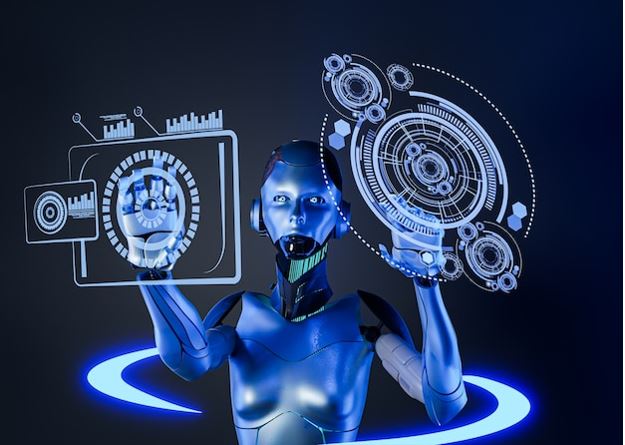
07 Sep Using GenAI to Enrich Capabilities
Our first blog in this series shed light on what Generative AI (GenAI) is and touched upon the uses and concerns surrounding this new buzzword (the blog can be accessed here).
As a subset of AI that can engage with humans and produce fresh content, GenAI is here to stay, regardless of the commentaries against it. McKinsey (2023) published an insight report on Economic Potential of Generative AI and assessed 63 use cases across 16 industries. It further suggested that GenAI can add up to $4.4t in economic benefits annually, three-fourth of which will be delivered from customer operations, marketing and sales, software engineering, and research and development (R&D) business functional areas. In this blog post, we will explore the top three areas of Gen AI use cases.
Let us now look at the practical uses of GenAI within each of these business functions to assess what has already been done and what potential uses await us.
Customer Operations
GenAI has the potential to significantly influence the customer services sector. Research indicates that it can enhance customer support in several ways:
- Increase issue resolution rate by 14%
- Reduce issue handling time by 9%
- Lower the request to talk to a manager by 25%
Notably, GenAI can contribute to improving the overall customer experience and mitigating employee (agent) attrition. Industries most affected by GenAI include BFSI and Telecom, primarily due to their extensive customer-facing and back-office functions.
Chatbot Interactions
With growing demand for self-services, chatbots or conversational AI using genAI is being explored to match human conversation and provide personalized responses to complex queries. Depending on the firm’s level of automation, GenAI can reduce human-service interactions by up to 50%. Prominent solutions in this domain encompass IBM Watson Assistant, UltimateGPT, and Zendesk Advanced AI.
Agent Interactions
Human agents are now leveraging AI-generated call scripts during phone conversations with customers. They can instantly access relevant customer data during customer interactions from company databases for tailored and real-time information delivery.
Enhanced Performance Management
For employees: Agents receive a concise summary of customer conversations and trends, along with customer complaints and actions taken. AI-generated, personalized insights are used by agents, including tailored follow-up messages and personalized coaching recommendations.
For Managers: Coupled with sentiment analysis, GenAI driven data equip managers with valuable insights to evaluate agent’s performance and providing guidance for improvement. Noteworthy examples in this domain include Anthropic Claude, Gong, and CoachHub AIMY.
Marketing and Sales (M&S)
Per McKinsey, GenAI could increase marketing productivity by 5-15% of current global marketing spending. Further, it could increase sales productivity by 3-5% of the sales expenditure. Integrating GenAI with M&S functions can offer benefits such as
- Time and budget efficiency through automation leading to efficient and effective content generation and marketing automation freeing up time for marketers, and facilitate lower time to market
- Targeted and personalized content using natural language processing (NLP) and machine learning algorithms for GenAI tools to create customized content
- Increased innovation and inspiration by encouraging marketers discover new ideas/ inspirations basis creative concepts and insights generated by GenAI
GenAI is already being leveraged for content creation (text/ audio/ video/ music), product discovery and search personalization, sentiment analysis, Search Engine Optimization (SEO) by marketers to achieve higher conversion and lower cost. Some GenAI marketing solutions include Diagram, Synthesia, Lightricks, and Rephrase.ai. Further, GenAI is changing the way both B2B and B2C companies approach sales, as it has potential to increase probability of sale and improve lead development.
Software engineering:
According to McKinsey, direct impact of AI on the software engineering productivity could range between 20-45% of current annual spending. Given its capabilities to manage large language models (LLMs), software engineers can use GenAI in pair programming and augmented coding for LLMs using natural-language prompt. In addition to accelerating the coding process, GenAI could push the capabilities needed in software engineering toward code and architecture design to improve turnaround time at lower cost. For example, according to a study, software developers using Microsoft’s GitHub Copilot completed tasks 56% faster than those not using the tool.
Also, Gartner predicts that 50% Of Software Engineering leader roles will need GenAI oversight by 2025 which further emphasizes how GenAI has the potential to drive the next phase of software engineering.
The GenAI era is just beginning, and these instances provide a mere glimpse of the diverse spectrum of GenAI’s applications within enterprises. However, the advantages it presents surpass the confines of industries and businesses. But to realize the full benefits of technology, business leaders have considerable challenges to address and amidst myriad benefits, GenAI has not been bereft of numerous controversies and negative commentaries. In our forthcoming piece, we will delve deeper into the primary areas of concerns for GenAI and see what is being done to address and mitigate them.
Author: Shivam Agarwal,
Assistant Consultant, Strategy Consulting
Image courtesy: Freepik


No Comments